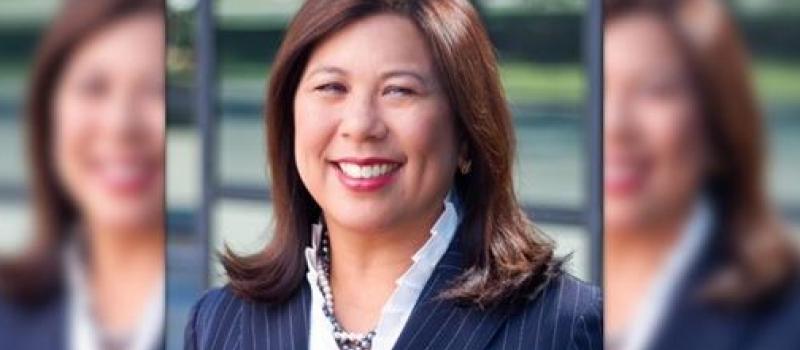Sustainability Stars: Betty Yee
posted by Marsha Vande Berg on November 8, 2020 - 1:05am

By Marsha J. Vande Berg
(Marsha J. Vande Berg is CEO of MJVGlobal Insights, serving as an educational resource to corporate and investment executives about sustainability, governance and political economies. As CEO of Pacific Pension and Investment Institute, she worked closely with global pension executives, particularly in the Asia Pacific. A Stanford Distinguished Careers Fellow, she teaches, writes for international publications and is a frequent forum and webinar speaker. Reach her on LinkedIn or Twitter.)
SAN FRANCISCO (Callaway Climate Insights) — California’s political leadership ranks easily in the upper percentile when it comes to taking action to bring climate change to heel. And yet, a minority of Californians still evinces skepticism toward the state’s pioneering approach to reining in greenhouse gas emissions.
Betty Yee, the state’s controller and chief fiscal officer, remains firm in her belief that the state’s approach to the environment is a winner, ranging from carbon reduction targets to hard curbs on car and truck emissions. What’s more, the minority’s skepticism, referenced in a July 2020 Public Policy Institute of California poll, still can be won over.
It won’t be easy. What’s required is setting “ambitious goals” and holding fast to their implementation, Yee said in a Sept. 24 interview with Callaway Climate Insights. The date was significant. Not only had Sept. 24 been officially named California Climate Action Day, the day also marked the occasion for Gov. Gavin Newsom to announce the state’s equivalent of a New Deal WPA.
Some may see California’s new Climate Action Corps as little more than a political flourish. But others, including Yee, applaud the governor for a program that engages California’s youth in building resilient communities and helping alter carbon’s upward trajectory.
Leadership is the antidote to skepticism, Yee says. It’s even more the case in California where citizens are increasingly — and painfully aware of just how vulnerable the state is to extreme weather conditions. The amount of acreage lost to date to wildfires already has set an all-time record and inflicted as yet untold economic damage, not to mention heartache.
Yee is a dynamo sitting in a catbird seat for making a difference when it comes to issues of import up and down the state. In addition to her multiple roles as controller, she holds a seat ex officio on the boards of the state’s two behemoth pension funds. The combined assets under management of CalPERS and CalSTRS is more than $620 billion. She is also on the board of Ceres, a Boston-based non-profit whose mission is to drive private sector investment, including that of public pension funds, toward sustainability.
Proud of the stick-to-it-tiveness of the two state pension funds’ sustainability strategies in the face of market downturns and the implications of Covid-19, Yee is committed to a full court press by the public and private sectors against environmental degradation.
First elected state controller in 2014 and then re-elected four years later, Yee chairs the Franchise Tax Board, oversees mandatory independent audits of state agencies and manages the payroll for some 50,000 state employees. She is the daughter of Chinese immigrants, grew up in San Francisco and says today that she knew at age 13 that a career in public service was for her.
She was but a teenager when she stood before the local board of education and spoke out on a busing matter, she told a local news reporter in 2017. From that point on, she said she knew she wanted to be a voice for others who otherwise might not be heard.
“We know we cannot continue on the path that we have been on,” Yee said in September in an emphatic reference to the devastation from wildfires that followed on the heels of the state’s hottest summer on record.
What’s more, she said, there is little time to lose.
From our interview with Yee:
Question: What first convinced you to be a public advocate for sustainability?
Answer: As a steward of our public dollars and as a fiduciary, it is important to work on ensuring we do not mortgage away the capacity of future generations to meet their own needs. This is the fundamental principle of sustainability.
Q: What is the No. 1 challenge facing proponents of sustainability today?
A: Because the sustainability agenda is so broad, it often lacks priority focus or presents multiple priorities. More significantly, this broad agenda may result in the continued exclusion of disproportionately affected communities and their voices in the development of impactful solutions.
Q: How would you explain sustainability’s value proposition to skeptics?
A: We are living and working in an era where the three forms of capital that drive value creation are becoming more finite or constrained — our physical capital, our financial capital and our social capital. Sustainability recognizes all these forms of capital and must be part of the value proposition for creating the future of our children and grandchildren.
Q: What has to change in our society for awareness to lead to universal action?
A: We are in the midst of change now; I believe each of us understand this as we experience first-hand the impacts of the global health pandemic, the pandemic-induced recession, the growing cries of true and lasting racial equity and justice and climate change. The challenge is how to drive universal, collective action. My hope is the lived experiences of our youth across all of our diverse communities are given voice to inform action for change.

